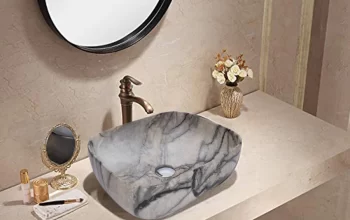At its core, simplifying and automating as much of your life as possible is key to making life simpler. This means identifying which areas feel burdensome or stressful before taking steps to prioritize self care.
Smart home technology can help alleviate some of your burden and that of your family by offering added conveniences like remote access and device compatibility.
1. Control Your Home From Anywhere
Apopting smart home tech is an effective way to streamline your home life and save money. Devices such as thermostats can learn your schedule and make adjustments automatically; smart lights and video doorbells allow you to see who is at the door via live feed and communicate directly.
Connected devices connect directly to WiFi networks and can be controlled through smartphone apps, voice command interfaces or digital assistants such as Amazon Echo and Google Assistant. By collecting user data they are able to build up an intricate profile of their habits enabling tailored automations that match up perfectly with each individual lifestyle.
Smart devices can also be activated remotely or on-the-go, so that you can keep an eye on security cameras or turn off lights before leaving home. Just remember to regularly update your hardware as this could become outdated if the manufacturer stops supporting it.
2. Save Money On Energy
One of the primary advantages of investing in smart technology is saving money on energy consumption. This can be accomplished by cutting waste and optimizing usage – smart lights can be switched off remotely or on a schedule to prevent wasted electricity, and appliances come equipped with sensors that automatically end cycles without overusing energy. Smart plugs can even cut power when electronics are no longer being used – saving up to $100 annually from wasted standby mode usage!
More advanced technologies, like Samsung’s SmartThings Energy service, use artificial intelligence to reduce energy usage in your home proactively. By adapting settings accordingly, this service learns your habits and predicts optimal heating and cooling needs at minimal costs to keep you comfortable at an acceptable cost.
3. Automate Your Routines
Imagine living in a smart home where it takes care of all the little details for you – such as turning on lights when entering a room, setting your coffee machine to be ready when you wake up, or shutting off power when leaving home for an evening out on the town.
Smart tech can automate devices and systems in your home using custom rules and settings to make life simpler for you and your family. Smart hubs like Google Home and Amazon Echo make this possible, while more sophisticated technologies use self-monitoring and intelligence to learn your habits and automate accordingly. Smart hubs act as bridges between data from devices such as switches, lights, locks, webcams, sensors that use different radio technologies and sensors that may interact.
4. Control Your Entertainment
Smart technology not only offers automation features but can also offer real-time monitoring of your home and property. This enables you to keep tabs on children, elderly loved ones, pets and water and power usage.
Smart Home Technology can save time and effort with simple functions like automatically adjusting blinds based on sun movement to reduce glare while protecting flooring, artwork, and furniture from potential damage.
Start smart home automation off right by choosing an interoperable device such as a smart speaker or lighting system that connects seamlessly with other devices via an appropriate hub. Make sure you have an extremely fast Internet connection such as gigabit Internet so your devices can talk among themselves without using up too much bandwidth for updates and functions.
5. Monitor Your Safety
Smart home devices enable you to automate your security system to unlock doors or alert authorities if a fire breaks out – something which could come in especially handy for homes where elderly or sick loved ones reside, who might require assistance during times of crisis.
Many smart home devices feature artificial intelligence machine learning built-in that can recognize your habits and replicate them automatically, eliminating the need to manually operate them. This automation also enables these devices to react based on factors like daylight availability and air quality; for instance, thermostats may adjust themselves automatically during the daytime to avoid overusing energy and save electricity bills while protecting the environment – they even monitor CO levels to notify if dangerous levels are detected.





